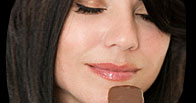What is Acne Vulgaris?
Acne vulgaris is the medical term for the most common variety of acne. This malady, so prolific that it may affect nearly everyone born with skin, consists of comedones, which most of us know as zits, pimples, and the like. Inflamed acne vulgaris causes pustules, papules, and nodules in the more severe varieties. Acne vulgaris usually manifests on the areas of the body boasting the most pore density, which means the face, upper chest, and upper back. Although body acne can be a problem, that usually indicates a more severe form of acne than mere acne vulgaris. Treatments for acne vulgaris vary as widely as the severity of this affliction with more than a few that fail to treat the root of the problem, much like cold medicines which treat only symptoms. However, unlike the common cold, scientists know the causes of acne vulgaris, and they are treatable.
Signs and Symptoms of Acne Vulgaris
So, how do you know if you have acne vulgaris? It is as obvious as the nose on your face. Do you have red inflammations, often raised above the level of the skin, large pores, whiteheads, and other inflammations? Most likely, you have acne vulgaris. Acne vulgaris at its worse causes scarring and social isolation, but it never threatens life. Outbreaks often result from time periods of intense stress, poor diet, and hormonal change. Treatments of acne vulgaris also include all natural formulas and lifestyle changes. In fact, happiness is one of the greatest factors in acne, according to many holistic approaches. They claim that simply staying positive and cheerful will help reduce unwanted acne.
Causes of Acne Vulgaris
Why do you suffer from acne? This question occurs to many acne sufferers, but the answer includes more than one might expect. Causes of acne vulgaris are four major factors: hormones, diet, hygiene, and genes. Obviously, nothing can be done about a given set of genes, so it falls to treating the other three factors. Acne vulgaris is caused when pores are plugged and become inflamed. Two things, sebum and dead skin cells, cause the blockage. Sebum is a material produced by the body, but when the body produces it in excess, sebum binds up dead cells within a pore resulting in acne. Naturally, this blockages presents an easy target and a certain kind of bacteria takes advantage to cause inflammation leading to the large zits and pimples that ruin prom nights. This process may repeat hundreds of time all over an unfortunate's face, chest, or back.
Treatment for Acne Vulgaris
Skin care is first step in the treatment of acne vulgaris. Wash twice daily with a gentle cleanser and use moisturizer. Second, consider any stresses, medications, or facts of life that might cause fluctuations in hormonal levels. These times may suggest times more prone to breakouts. Finally, for continuing acne, choose a good system to deal with the acne problem. One system designed for continuous daily use is called RevitaClear . RevitaClear addresses the causes of acne vulgaris both inside and out. Over time, usually within a month, RevitaClear keeps the skin clean while treating the underlying causes of acne, including the bacteria, the sebum, and the dead skin cells. For severe acne, see a dermatologist.




